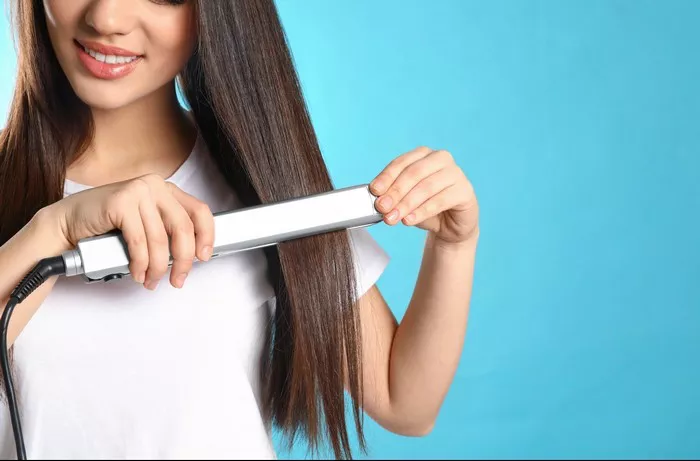In today’s fast-paced world, achieving silky, smooth hair without relying on heat styling tools is a dream for many. Heat tools like flat irons and curling wands can offer instant gratification but often lead to long-term damage, dryness, and split ends. The good news is that with the right hair care tips, it is entirely possible to enjoy lustrous locks without ever plugging in a straightener. This comprehensive guide will walk you through natural methods and routines to help you attain silky hair the healthy way.
Understanding Silky Hair
Silky hair is often defined by its softness, smooth texture, and a healthy shine. It’s free from frizz, split ends, and breakage. The key to achieving this lies in maintaining the hair’s natural moisture balance and avoiding practices that strip it of its essential oils. To do this, understanding your hair type and needs is crucial.
Why Avoiding Heat is Beneficial
Using heat on your hair can weaken the hair shaft, lead to protein loss, and make strands more prone to breakage. Frequent heat exposure also dries out hair, robbing it of its natural luster. Eliminating heat from your hair routine is a step towards overall hair health advice that promotes stronger, more vibrant hair in the long run.
Proper Washing Techniques
Choose the Right Shampoo and Conditioner
Start with sulfate-free shampoos and silicone-free conditioners. Sulfates can be harsh and strip the hair of natural oils, while silicones may build up over time, weighing your hair down. Look for products with natural ingredients like argan oil, coconut milk, and aloe vera to help lock in moisture and enhance silkiness.
Cold Water Rinse
Rinsing your hair with cold water at the end of a shower can help close the cuticles, locking in moisture and giving your hair a smoother appearance. This simple step adds a natural sheen and reduces frizz.
Drying Without Damage
Microfiber Towels or T-Shirts
Instead of rough-drying your hair with a regular towel, opt for a microfiber towel or an old cotton T-shirt. These materials are gentler on the hair and reduce frizz caused by friction.
Air Dry with Care
After gently squeezing out excess water, let your hair air dry. Avoid brushing wet hair as it’s more susceptible to breakage. Use a wide-tooth comb to detangle gently starting from the ends and working your way up.
Moisture and Hydration
Deep Conditioning Treatments
Incorporate deep conditioning into your weekly routine. Ingredients like shea butter, avocado oil, and keratin can deeply penetrate the hair shaft, restoring moisture and elasticity.
Leave-In Conditioners
Leave-in conditioners help retain hydration throughout the day and make detangling easier. They also create a barrier against environmental stressors that can damage the hair cuticle.
Natural Oils
Oils like argan, coconut, jojoba, and almond oil are excellent for sealing in moisture and adding shine. Apply a small amount to the ends of your hair to nourish and smooth them.
Brushing and Detangling
Use the Right Tools
Invest in a boar bristle brush or a wide-tooth comb. These tools are gentle on the scalp and distribute natural oils from the scalp down the hair shaft, promoting silkiness.
Detangle Strategically
Always start detangling at the ends and gradually move upward. This prevents unnecessary breakage and reduces stress on the hair follicles.
Protective Styling
Silk and Satin Accessories
Switching to silk or satin pillowcases, scarves, and scrunchies reduces friction and helps maintain your hair’s smooth texture overnight.
Protective Hairstyles
Styles like braids, buns, and twists help minimize exposure to environmental damage and keep hair strands secure and untangled.
Diet and Lifestyle
Nutrition Matters
What you eat significantly impacts your hair’s health. A diet rich in omega-3 fatty acids, biotin, protein, and vitamins A, C, and E can promote shiny, healthy hair from the inside out.
Hydration
Drink plenty of water daily. Hydrated hair is less prone to dryness and breakage, and it naturally appears shinier and softer.
Exercise and Stress Management
Exercise increases blood circulation to the scalp, stimulating hair growth. Managing stress through mindfulness, meditation, or regular physical activity can also prevent hair thinning and loss.
Natural Remedies for Silky Hair
DIY Hair Masks
- Banana and Honey Mask: Blend one ripe banana with two tablespoons of honey. Apply to hair, leave for 20-30 minutes, and rinse with lukewarm water.
- Egg and Yogurt Mask: Mix one egg with two tablespoons of plain yogurt. Apply to hair and scalp, leave for 20 minutes, then rinse thoroughly.
- Coconut Oil Overnight Treatment: Apply coconut oil from mid-lengths to ends before bed and cover with a shower cap. Wash out the next morning for deeply conditioned hair.
Herbal Rinses
Rinsing your hair with natural herbs like rosemary, chamomile, or hibiscus can add shine and softness. Brew the herb in hot water, let it cool, and use it as a final rinse after shampooing.
Consistency Is Key
Getting silky hair without heat doesn’t happen overnight. It requires dedication to a consistent routine. Sticking to your hair care steps, avoiding harmful practices, and being patient with the process are essential for lasting results.
Conclusion
Silky hair without heat is not just a fantasy—it’s a healthy, achievable reality. By understanding your hair’s needs and nourishing it with the right products, methods, and lifestyle habits, you can enjoy a naturally glossy mane. Avoiding heat doesn’t mean compromising style; it means choosing sustainable beauty. Whether you’re transitioning away from heat or simply seeking a healthier routine, these strategies will guide you on the path to smoother, stronger, and more radiant hair. Stay consistent, treat your hair with care, and soon, the silky results will speak for themselves.
Related Topics:
- An Ode to Cult Black Hair Care Brands: Celebrating Heritage, Community, and Innovation
- Mother-Daughter Duo Champions Hair Health and Representation with Camel Glow
- Kérastase’s K-SCAN AI Scalp Analysis Revolutionizes My Hair Care Routine


